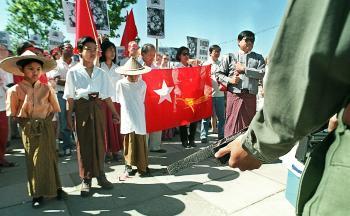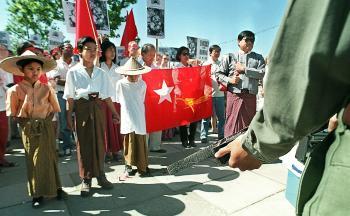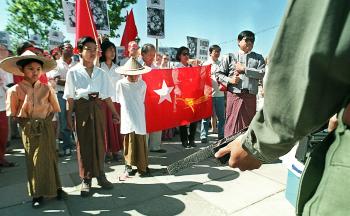‘Canada Was Quite Caring,’ Says Jailed Student Freedom Fighter
Solemn events were held by Burmese Canadians and supporters across Canada on August 8 to commemorate the 20th anniversary of the democracy movement in Burma.
August 8, 1988, referred to as 8.8.88, “is very significant in Burmese history because this is the second time having a [mass uprising] calling for change in the political system,” said Tin Maung Htoo, executive director of the Canadian Friends of Burma (CFOB).
The first was the 1938 anti-colonial uprising that laid the foundation for Burma’s independence from British rule ten years later.
More than a decade of parliamentary democracy followed. However, successive insurgencies led by communist and ethnic groups destabilized the economy and the young democratic nation. In 1962 a coup staged by General Ne Win plunged Burma under military rule.
“[Then in 1988,] people showed their desire for change in the political system after living under totalitarian authority for 26 years,” Maung Htoo said. “They didn’t enjoy fundamental rights and freedoms and also became very, very poor.”
Economic hardship and ongoing repression brought millions of people to the streets.
“I was one of the ’88 uprising fighters,” Maung Htoo said. Sixteen years old at the time, he began taking part in the student-led democracy movement in March that year.


